If you work with toddlers, you’re likely familiar with the phrases, “llama, llama red pajama” from the Llama Llama book series and “I was rocking in my school shoes” from the Pete The Cat series. Reading books to toddlers is not only fun and entertaining but can also be highly beneficial for exposing them to pre-reading and emerging reading skills! Pre-reading skills can start developing as early as infancy. For young readers, these pre-reading skills can be as simple as exposing them to books, inspiring motivation to read, helping them become aware of letters, and understanding that letters stand for something. ABA Speech would like to share some ideas to help with integrating these concepts into your therapy sessions!
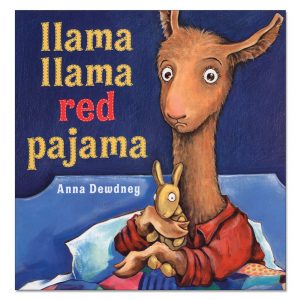
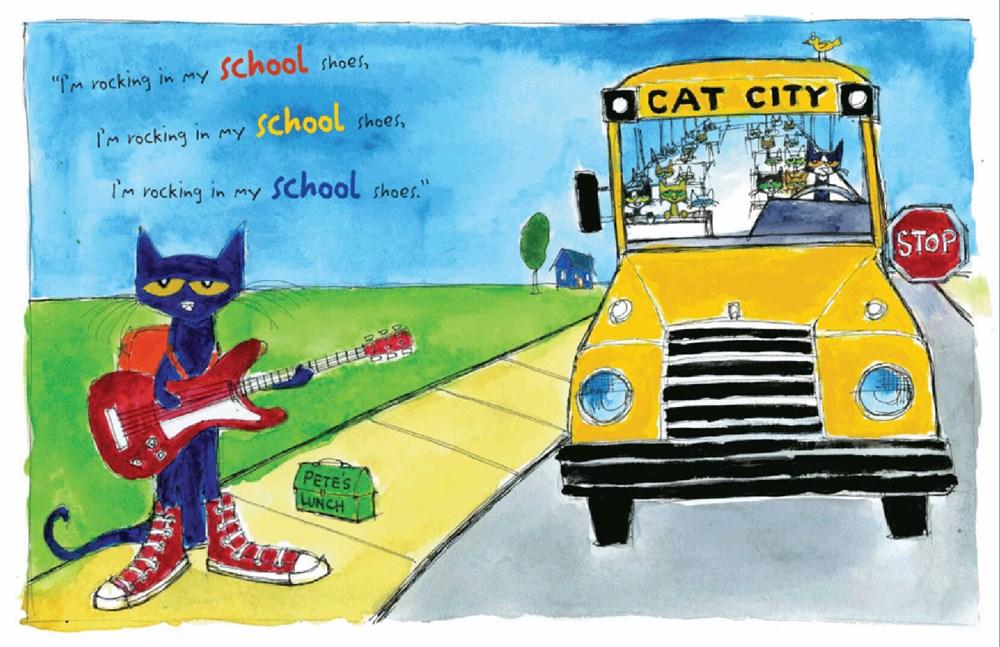
How To Make Reading More Engaging
Some children naturally love books, while it takes others a bit to warm up to them or find their interest. To help young readers become more engaged with books and find reading to be more fun, it can be helpful to allow them to be adventurous and choose books based on their preferences. Reading books that are relevant to the child or those that are based on their interests facilitates increased opportunities for conversation and a higher possibility for enjoyment of reading. You can also encourage young children to choose a favorite seat (whether it be a bean bag chair, sling chair, kid size chair, oversized pillow, etc.) to sit on while looking at a book. Changing up the lighting can also be engaging (ie. reading outdoors, reading by lamp, or while using a flashlight). When working with children who don’t want to sit through a book, you can allow them to stand/walk or play with a sensory toy to get sensory input, helping with sustained attention. For those with decreased attention spans, you don’t have to read every word. Making modifications to adjust to the child’s levels and needs is completely acceptable. Most importantly, you are exposing them to books!
How Can Books Help Improve Language Skills
We can embed many communication activities within literacy activities. Using books in therapy sessions provides numerous opportunities to expose young children to pre-reading and emerging reading skills. Titles that lend themselves to helping with these skills include touch and feel/lift the flap type books that allow the child to explore through tactile and visual feedback and books containing repetitive lines (i.e. Brown Bear, Brown Bear; I Went Walking) as these are highly beneficial in helping with predicting skills. These books also often contain simple words to help with verbal imitation. Shared reading and reading books together not only helps with pre-reading and emerging reading skills but also provides opportunities for joint attention and social skills through a shared activity.
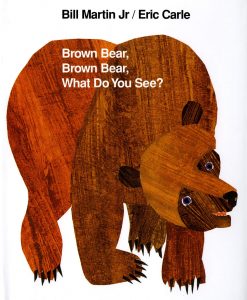
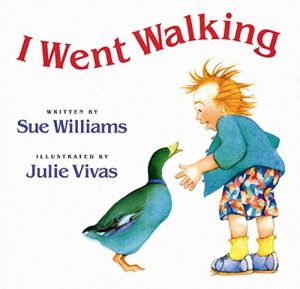
Strategies
What strategies can be used while using books with toddlers? Dialogic reading can be very helpful to prompt children to ask questions and help to engage them in the process. According to Chloe Hill, a pediatric speech-language pathologist, the CROWD strategy can be highly effective. The CROWD acronym stands for the following: Completion prompt (leaving out the last word of a sentence; Recall prompt (asking about something that has already happened); Open-ended prompt (asking a question about a picture on a page); Wh-Questions (asking who, what, when, where, and/or why questions); and Distancing prompt (asking questions that have them connect to their life). Another strategy involves covering up certain areas of the book with sticky notes, to help with predicting skills and keep the reader engaged. Depending on the student, it can be helpful to invite the parents to be part of sessions or portions of sessions to help educate strategies to implement at home, helping with carryover.
Providing Opportunities To All Kids
When working with a child with complex communication needs or those with disabilities, it’s important to remember how important it is to still provide opportunities. Books and extension activities can be adapted to the child’s learning level. Even though these children have more complex needs, books can easily be integrated into sessions to provide literacy exposure to these children as well. Even if you have a child who is not interested in books, you can still provide print awareness with exposure through toys, blocks, etc. with letters. In addition, online books (ie. Epic books) can be highly engaging. It’s important to remember children won’t be able to show us if they are interested if we don’t provide opportunities. Progress can look different for every child.
We hope you’ve found this information helpful! To help integrate books into your therapy sessions and even at home, we’d like to share a fun content upgrade with you! Be sure to scroll down to the bottom, and input your e-mail to get your free Llama, Llama and Pete The Cat content upgrade! This is the perfect supplement to ease your planning for teletherapy, in-person, mixed level groups, all ages, and small group reading instruction!
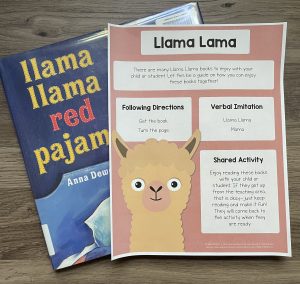
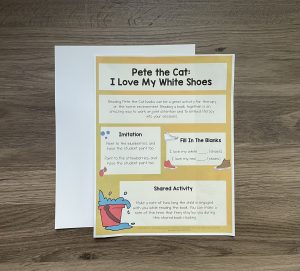

0 Comments